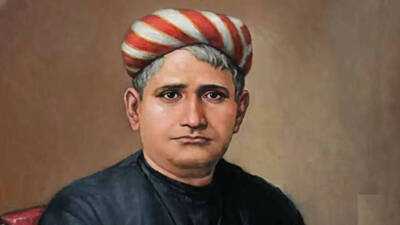November 7, 2025, marks a significant milestone in Indian history as it commemorates the 150th anniversary of the national song 'Vande Mataram.' Composed by Bankim Chandra Chatterjee on this auspicious day in 1874, the song became a source of inspiration during the Indian freedom struggle. It not only invigorated the fight for independence but also provided a new direction to Indian literature. On this momentous occasion, Prime Minister Narendra Modi will inaugurate a remembrance event.
Ceremony Highlights
The event, taking place in Delhi, will see PM Modi unveil a special commemorative postage stamp and coin. This celebration is dedicated to all the freedom fighters who propelled the nation towards independence with the rallying cry of 'Vande Mataram.' The song continues to ignite a sense of patriotism in the hearts of every Indian.
About Bankim Chandra Chatterjee
In the 19th century, India was undergoing significant transformations, from cultural identity to modernity, under British rule. Bengal produced some of the most renowned figures who instigated societal revolutions. Bankim Chandra Chatterjee remains a prominent name, celebrated for writing the national song 'Vande Mataram' in a Sanskrit-influenced Bengali. He played a crucial role in energizing the freedom movement and advocating for the Hindu renaissance.
Chatterjee's Vision
Chatterjee believed that India had strayed from its roots, a civilization with a rich history that had imparted knowledge to the world over time. His conviction was deeply rooted in the revival of India's ancient wisdom rather than adopting the Western lifestyle that was gaining popularity in Bengal at the time.
'Please Say Vande Mataram'
In his work 'Anandamath,' he criticized the historical narratives written by the British, which defined India's heritage from the perspective of its invaders. He rejected the glorification of figures like the Mughals and the Nawabs of Bengal. Chatterjee asserted that the British subdued Indians by force, and only through force could they be challenged. He urged, 'Please say Vande Mataram,' elevating India to the status of a mother goddess and inspiring activists during the freedom struggle.
A Multifaceted Talent
Chatterjee was not just a novelist; he was also a poet, essayist, and journalist. On December 11, 1858, he became one of the first graduates from Calcutta University.
Journey to Becoming a Literary Monarch
Regarded as a key figure in the literary renaissance of Bengal and the broader Indian subcontinent, Chatterjee's writings, including novels, essays, and critiques, deviated from traditional verse-centric Indian literature, inspiring writers across India.
Commitment to Education
Born on June 27, 1838, into a conservative Brahmin family, Chatterjee was dedicated to education. His roots trace back to the Hooghly district, where his family members were well-educated, including his brother, who was a novelist known for his book 'Palamu.'
Service as Deputy Collector
Chatterjee showcased his talents across various fields, including arts and law, and joined the executive service at a young age, serving as a Deputy Collector. His extraordinary qualities led Rabindranath Tagore to regard him as a mentor, stating, 'Bankim Chandra possessed equal prowess in both hands; he was a true savyasachi (ambidextrous).'
Identifying India's Missing Elements
Throughout his diverse journey, Chatterjee recognized two critical components missing in Indian society that could unify the nation. He noted a lack of linguistic skills essential for the country's future and an emotional connection to the motherland. 'Vande Mataram' addressed both deficiencies, providing a political impetus through its Sanskrit-influenced Bengali language and creating a song that everyone could sing to express their devotion to the motherland.
A Call to Unity
Chatterjee, having witnessed the shadows of colonial subjugation from a young age, aimed to ignite a flame that would revive the ancient spirit of India and eradicate foreign rule. He identified deep societal divisions and sought to bridge these gaps through his words. His immortal creation, 'Vande Mataram,' resonates as a call to the motherland, urging every heart to beat in unison. It became an anthem that stirred the souls of millions during India's freedom struggle.
A Symbol of Resistance
The song became such a potent symbol of the freedom movement that the British imposed a ban on it. Its roots lie in the narrative of the 19th-century Sannyasi rebellion.
You may also like

No shoes, no problem: Influencer walks Tokyo streets in white socks; viral test stuns internet

Vande Mataram, the very soul and identity of India: Gujarat BJP chief

Muhammad Irfan To Lead Pakistan Shaheens In Rising Stars Asia Cup

'Lalu's son will open Apaharan department': Amit Shah cautions voters in Bihar; urges them not to 'deviate' from Lotus or Arrow

Why are horoscopes not considered in Sikhism? You will be surprised to know the reason!







